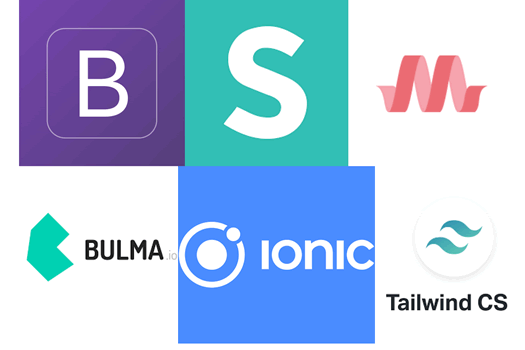
CSS frameworks pros and cons
CSS frameworks are pre-designed libraries of code that allow web developers to easily apply styling to their web projects. Here are some pros and cons of using CSS frameworks:
Whether or not to use a CSS framework is a matter of personal preference and the specific needs of your project. It can be helpful to weigh the pros and cons carefully before deciding whether a CSS framework is a right choice for your project.
CSS frameworks are awesome and funny to see and use but nothing is perfect in software and web development, neither in HTML and CSS. Here we are to see all pros and cons of using a CSS framework to build user interfaces and specific parts of our website or application.
Whether or not to use a CSS framework is a matter of personal preference and the specific needs of your project. It can be helpful to weigh the pros and cons carefully before deciding whether a CSS framework is a right choice for your project.
CSS frameworks are awesome and funny to see and use but nothing is perfect in software and web development, neither in HTML and CSS. Here we are to see all pros and cons of using a CSS framework to build user interfaces and specific parts of our website or application.
PROS
- Speed up development time: CSS frameworks provide a set of default styles and layout options that can be easily imported into a project, saving developers time and effort in setting up the basic structure and appearance of a website.
- Consistency: CSS frameworks can help ensure that a website's design is consistent across different pages and devices, as the framework provides a set of standard design elements that can be easily reused
- Responsive design: Many CSS frameworks are built with responsive design in mind, meaning that they automatically adjust the layout and appearance of a website to look good on different screen sizes and devices.
- You don't have to worry about all the CSS problems like multiple browser compatibility and many other common features
- All frameworks are easy to learn (I think only Material Design is pretty strange and hard to learn and use!)
- Some Javascript and interactive parts can be added in some popular frameworks like Bootstrap or Zurb Foundation
- Community support: popular CSS frameworks often have large communities of users, meaning that there is a wealth of online resources and support available for those using the framework.
CONS
- Code bloat: unused CSS and JS are almost inevitable. They generate slower performances, especially on mobile and other small device and\or with a slow connection,
- Limited customization: Using a CSS framework means that you are limited to the design options provided by the framework. If you want to deviate from the framework's default styles, you may have to write additional CSS code to override the framework's styles.
- All layouts built with the same framework tend to be very similar.
- Dependency: If you use a CSS framework, you are dependent on the framework's updates and support. If the framework is no longer maintained or updated, your website may break or become outdated.
Popular CSS frameworks
Conclusions
Simply try and see many solutions and see what is almost perfect for you, your project and\or your company. If you know many CSS frameworks and solutions (even much generically), you will be able to do the right choice. Also, try to search the limits of a CSS framework and try to see if they can be a problem for the future.

